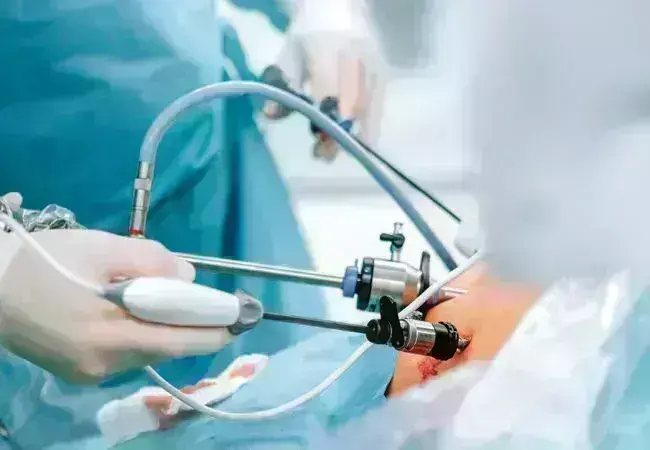- Home
- Medical news & Guidelines
- Anesthesiology
- Cardiology and CTVS
- Critical Care
- Dentistry
- Dermatology
- Diabetes and Endocrinology
- ENT
- Gastroenterology
- Medicine
- Nephrology
- Neurology
- Obstretics-Gynaecology
- Oncology
- Ophthalmology
- Orthopaedics
- Pediatrics-Neonatology
- Psychiatry
- Pulmonology
- Radiology
- Surgery
- Urology
- Laboratory Medicine
- Diet
- Nursing
- Paramedical
- Physiotherapy
- Health news
- Fact Check
- Bone Health Fact Check
- Brain Health Fact Check
- Cancer Related Fact Check
- Child Care Fact Check
- Dental and oral health fact check
- Diabetes and metabolic health fact check
- Diet and Nutrition Fact Check
- Eye and ENT Care Fact Check
- Fitness fact check
- Gut health fact check
- Heart health fact check
- Kidney health fact check
- Medical education fact check
- Men's health fact check
- Respiratory fact check
- Skin and hair care fact check
- Vaccine and Immunization fact check
- Women's health fact check
- AYUSH
- State News
- Andaman and Nicobar Islands
- Andhra Pradesh
- Arunachal Pradesh
- Assam
- Bihar
- Chandigarh
- Chattisgarh
- Dadra and Nagar Haveli
- Daman and Diu
- Delhi
- Goa
- Gujarat
- Haryana
- Himachal Pradesh
- Jammu & Kashmir
- Jharkhand
- Karnataka
- Kerala
- Ladakh
- Lakshadweep
- Madhya Pradesh
- Maharashtra
- Manipur
- Meghalaya
- Mizoram
- Nagaland
- Odisha
- Puducherry
- Punjab
- Rajasthan
- Sikkim
- Tamil Nadu
- Telangana
- Tripura
- Uttar Pradesh
- Uttrakhand
- West Bengal
- Medical Education
- Industry
Bariatric Surgery May Eliminate Obesity-Related Breast Cancer Risk

Bariatric Surgery May Eliminate Obesity-Related Breast Cancer Risk suggests a new study published in the JAMA Surgery
Excess adiposity confers higher risk of breast cancer for women. For women who have lost substantial weight, it is unclear whether previous obesity confers residual increased baseline risk of breast cancer compared with peers without obesity.
A study was done to determine whether there is a residual risk of breast cancer due to prior obesity among patients who undergo bariatric surgery.
Retrospective matched cohort study of 69 260 women with index date between January 1, 2010, and December 31, 2016. Patients were followed up for 5 years after bariatric surgery or index date. Population-based clinical and administrative data from multiple databases in Ontario, Canada, were used to match a cohort of women who underwent bariatric surgery for obesity (baseline body mass index [BMI] ≥35 with comorbid conditions or BMI ≥40) to women without a history of bariatric surgery according to age and breast cancer screening history. Nonsurgical controls were divided into 4 BMI categories (<25, 25-29, 30-34, and ≥35). Data were analyzed on October 21, 2021.
Residual hazard of breast cancer after washout periods of 1, 2, and 5 years. Comparisons were made between the surgical and nonsurgical cohorts overall and within each of the BMI subgroups.
Results
In total, 69 260 women were included in the analysis, with 13 852 women in each of the 5 study cohorts.
The mean (SD) age was 45.1 (10.9) years. In the postsurgical cohort vs the overall nonsurgical cohort (n = 55 408), there was an increased hazard for incident breast cancer in the nonsurgical group after washout periods of 1 year , and 5 years .
When the postsurgical cohort was compared with the nonsurgical cohort with BMI less than 25, the hazard of incident breast cancer was not significantly different regardless of the washout period, whereas there was a reduced hazard for incident breast cancer among postsurgical patients compared with nonsurgical patients in all high BMI categories (BMI ≥25).
Findings suggest that bariatric surgery was associated with a reduced risk of developing breast cancer for women with prior obesity equivalent to that of a woman with a BMI less than 25 and a lower risk when compared with all groups with BMI greater than or equal to 25.
Reference:
Doumouras AG, Lovrics O, Paterson JM, et al. Residual Risk of Breast Cancer After Bariatric Surgery. JAMA Surg. Published online April 12, 2023. doi:10.1001/jamasurg.2023.0530
Dr. Shravani Dali has completed her BDS from Pravara institute of medical sciences, loni. Following which she extensively worked in the healthcare sector for 2+ years. She has been actively involved in writing blogs in field of health and wellness. Currently she is pursuing her Masters of public health-health administration from Tata institute of social sciences. She can be contacted at editorial@medicaldialogues.in.
Dr Kamal Kant Kohli-MBBS, DTCD- a chest specialist with more than 30 years of practice and a flair for writing clinical articles, Dr Kamal Kant Kohli joined Medical Dialogues as a Chief Editor of Medical News. Besides writing articles, as an editor, he proofreads and verifies all the medical content published on Medical Dialogues including those coming from journals, studies,medical conferences,guidelines etc. Email: drkohli@medicaldialogues.in. Contact no. 011-43720751


